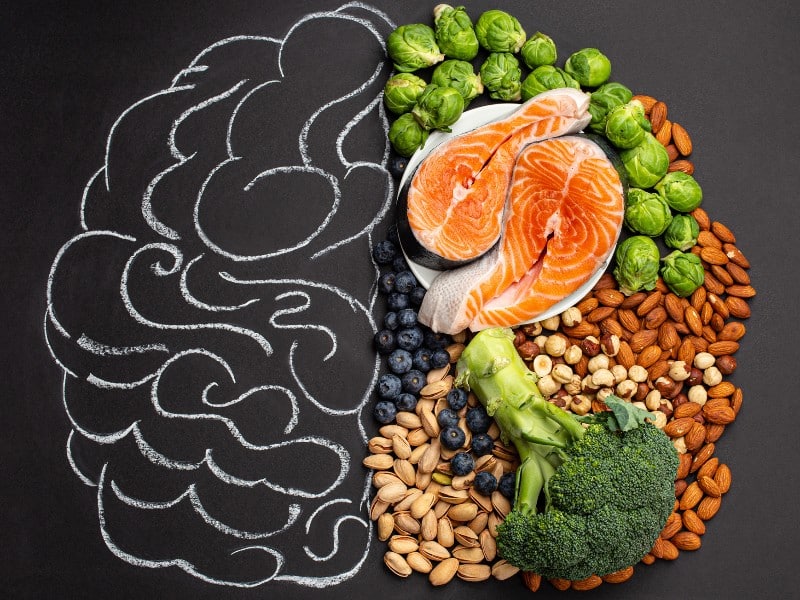Eating right can reverse diabetes, relieve pain, and improve heart health. But what about keeping the brain healthy, especially as we get older? There’s a diet for that, too.
The MIND diet combines two healthy eating plans: the plant-based Mediterranean diet and DASH, a “dietary approach to stop hypertension.” Together they emphasize foods that have been shown to ward off Alzheimer’s disease, dementia, and other forms of cognitive decline.
“MIND is an acronym for Mediterranean-DASH Intervention for Neurodegenerative Delay,” says Julie Langeberg, MS, RDN, LD, registered and licensed dietitian at Methodist Southlake Medical Center. “Both the DASH diet and the Mediterranean diet are supported by research as positively impacting brain health. Those diets have also been linked to reducing the risks for hypertension, stroke, and heart attacks.”
What causes cognitive decline as we age remains unclear. Research suggests that underlying conditions like heart disease and high blood pressure raise the risk of dementia. In other words, what’s good for the heart is also good for the head.
And because our brains use 20% of the calories we consume, eating healthy can boost memory, focus, and mood. Adhering to the MIND or Mediterranean diet could lower the risk of cognitive decline by 30% to 35%, according to a 2017 study published in the Journal of the American Geriatrics Society.
To get started with the MIND diet, here are some foods to prioritize — as well as some to avoid.
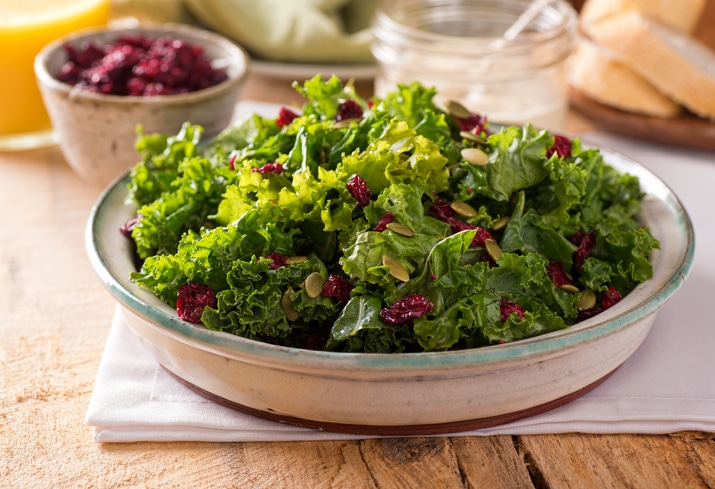
LEAFY VEGETABLES
Eating your vegetables has always been good advice. Still, green, leafy vegetables — the darker the better — are especially beneficial to your brain, and this diet orders up at least one serving a day. Think kale, spinach, and greens, whether they’re collard, turnip, or mustard greens.
“These veggies contain nutrients that studies show are helpful towards maintaining memory and learning abilities,” Langeberg says. “Specifically, collard greens, spinach, and kale contain carotenoids, antioxidants that help protect our brain from oxidative stress.”
Don’t discount other vegetables, however, because this diet calls for another daily serving of those, preferably the non-starchy variety. Carrots and tomatoes are also rich in carotenoids, and legumes like beans, peas, and lentils are good for the brain, too.
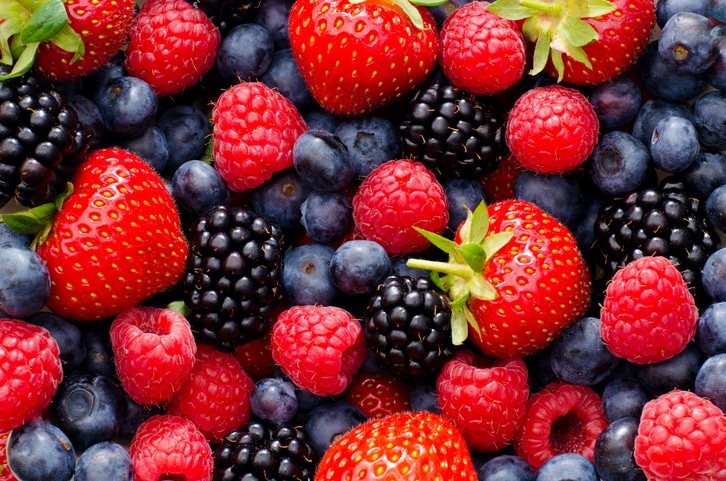
BERRY GOOD FOR YOU
If you’re a fan of tangy fruits, this will be a treat for you! The MIND diet prescribes at least two servings of berries per week.
“The high number of flavonoids inside of berries are linked to slowing down the aging process in the brain,” Langeberg says. “Berries are great substitutes for desserts whenever you crave something sweet.”
Strawberries, blueberries, and raspberries are low in calories and high in fiber, so they make the perfect snack to help keep you satisfied throughout the day.
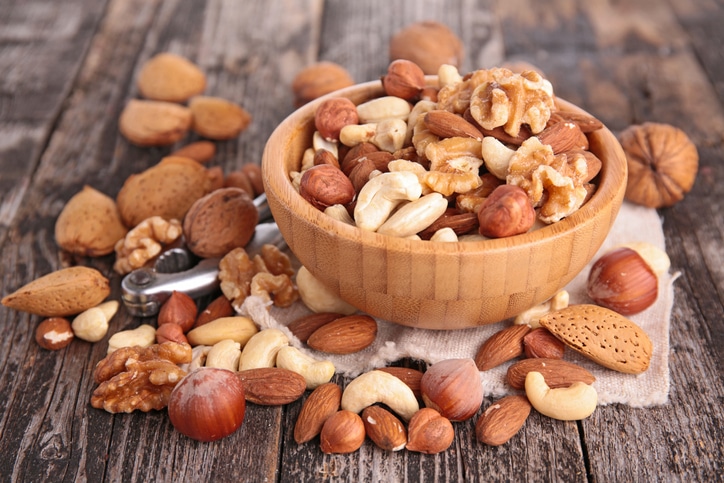
NUTS AND OLIVE OIL
Nuts are typically high in calories and fat content, so they are often overlooked as foods that help maintain overall health — and a healthy brain specifically.
“Nuts such as almonds, macadamias, and pistachios help keep our brain function at its best and prevent inflammation,” Langeberg says. “Walnuts have a high amount of DHA, an omega-3 fatty acid, which helps improve cognitive performance in adults, and can help prevent age-related cognitive decline.”
Olive oil, another staple of the Mediterranean diet, also contains brain-boosting omega-3 fatty acids. This diet suggests two tablespoons a day, and research backs up this key ingredient to healthy cooking.
A 2022 study that followed 92,000 Americans over 28 years found that those whose diet contained more olive oil had a 29% lower risk of dying from neurodegenerative diseases like Alzheimer’s.
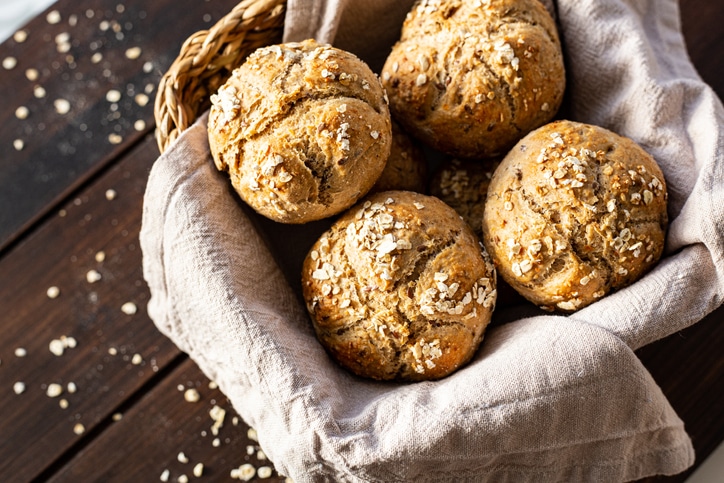
WHOLE GRAINS
Those who enjoy carbs can do so in peace with the MIND diet. Unlike diets more concerned with weight loss, there’s room for some carbs in this eating plan, so you’ll get all the fiber and B vitamins your brain needs.
“These complex carbohydrates are especially helpful towards preserving your memory and reducing inflammation in your brain,” Langeberg says.
Of course, not all carbs are created equal. Refined grains have been milled to remove many of the nutrients in order to extend shelf life.
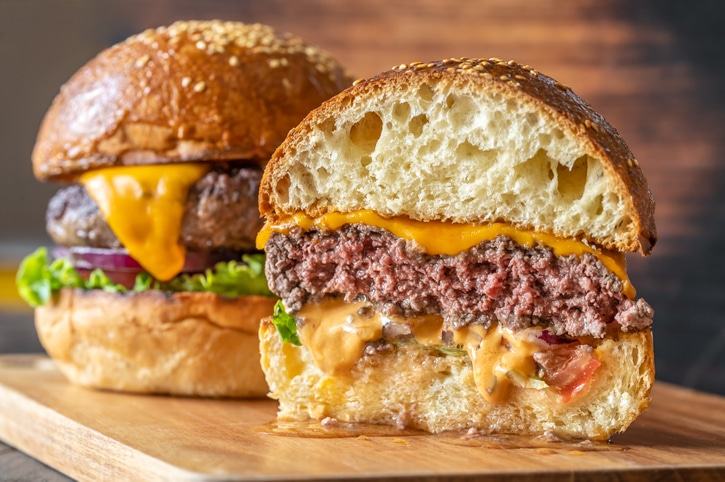
FOODS TO AVOID
Now for some bad news for dairy and meat lovers: The MIND diet discourages foods with saturated and trans fats, which have been linked to many diseases, including Alzheimer’s.
That means cutting back on cheese to just 2 ounces per week and limiting dairy to low or no-fat varieties. Red meat is also restricted, though not as drastically. Beef, pork, and lamb should be limited to three servings or less per week under the MIND diet.
Instead of red meat, try poultry like turkey or chicken — though forget about fried chicken — or fish like salmon, which is packed with omega-3 fatty acids, the fat that’s good for your brain.
“Foods high in saturated fats can contribute negatively to our brain’s health,” Langeberg says. “Practicing a meatless day every so often can help improve your risk of developing neurological diseases.”
This can be a great opportunity to substitute your beef for beans. Kidney beans, black beans, soybeans, and lentils can be transformed into tasty and filling meat replacements.
PORTION CONTROL
This diet focuses on moderation. Aside from high-fat dairy, it doesn’t ask you to quit eating foods you enjoy completely. Instead, limit your servings of certain foods or simply find healthier alternatives.
It might be a challenging adjustment at first, but you can accomplish anything if you put your MIND to it.
“The great thing about the MIND diet is you aren’t focusing on counting calories, and you don’t have to follow it to the T to improve your brain’s health,” Langeberg says. “Research shows that if you follow the diet even at a modest level, you can still help reduce your risk of developing Alzheimer’s disease. But if you follow the diet strictly, you can significantly slow down your brain’s aging process.”

